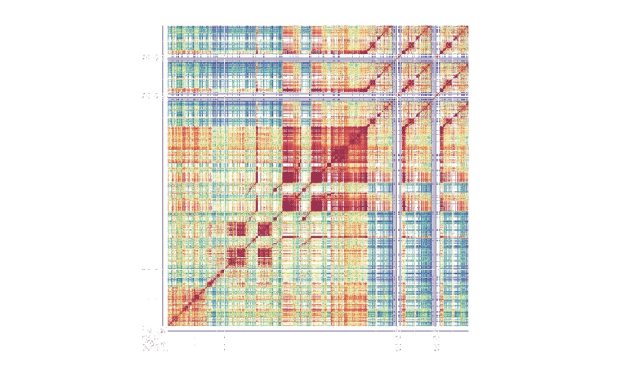Ageing clock begins ticking even before birth, Caius Professor finds
- 02 March 2016
- 4 minutes
The ageing clock begins ticking even before birth while the baby is in the womb, according to ground-breaking new research led by a Caius Professor of Medicine. The study, published by a team headed by Professor Dino Giussani, Director of Studies in Medicine at Caius, also reveals for the first time that ageing can be slowed if pregnant mothers are given antioxidants – paving the way for steps to help babies born to complicated pregnancies.
The remarkable findings, which are of global significance, are published today in the FASEB Journal, one of the world’s leading biology journals. They have important implications for addressing heart disease – the greatest killer in the world today, affecting one in three people – since they suggest it can be influenced by our very earliest environment.
Dino Giussani, Professor of Developmental Cardiovascular Physiology & Medicine at Cambridge, said: “What makes us age has been a topic of fascination for as long as anyone can remember, in the hope of finding an antidote so we can live forever young.
“Now we know that the ageing clock begins ticking even before we are born and enter this world! Antioxidants are known to reduce ageing, for instance they are indispensable ingredients in any good anti-age skin cream. Here, we show for the first time that giving pregnant mothers antioxidants can slow down the ageing clock of their offspring.”
At the heart of the experiments conducted by Prof Giussani, his team and important collaborations with Professor Sue Ozanne of the Institute of Metabolic Science at Cambridge, is the fact that, when we age, ends of chromosomes (our DNA) in our cells get shorter. This end region is called a telomere, and telomere shortening is linked with the normal ageing process.
Researchers measured the length of telomeres in blood vessels of adult laboratory rats born from mothers who were fed antioxidants during normal or complicated pregnancy, and from another group of mothers who were not fed the antioxidants. The most common complication of pregnancy is a reduction in the baby's oxygenation - for instance in expectant mothers who smoke and those suffering preeclampsia. To simulate this complication, the scientists placed a group of pregnant laboratory rats in a room containing 7% less oxygen than normal.
The experiments revealed that ageing begins even during life before birth, but also that adult rats born from mothers who were supplemented with antioxidants during pregnancy aged more slowly. Conversely, adults born from mothers with lower levels of oxygen in the womb aged faster.
The findings could have a significant impact on the treatment of an array of disorders and conditions that may begin in the womb, including heart disease, peripheral vascular disease, diabetes, obesity and a range of pregnancy complications ranging from maternal smoking, maternal obesity and high altitude pregnancy to preeclampsia and gestational diabetes.
Prof Giussani said: “We now know that our genes interact with environmental risk factors, such as smoking, obesity and a sedentary life to set an increased risk of heart disease. In addition to this gene-environment interaction, we also now know that the environment during early life may be just as, if not more, important in programming a risk of adult-onset cardiovascular disease.
Dr Beth Allison, the first author of the manuscript, said: “In this work, we show that adults born from mothers who had less oxygenation during pregnancy, such as may be induced by maternal smoking, aged more quickly and are predisposed to suffering heart disease earlier than normal. We also show that maternal antioxidant therapy during complicated pregnancy can protect the offspring heart and circulation.”
The finding that ageing begins so early may be seen as shocking, the researchers acknowledge. Prof Giussani said: “This discovery is exciting and novel as it is the first to introduce the rather depressing concept that the ageing clock begins ticking even before we are born into this world, particularly if the oxygen levels in the womb were lower than normal, as may happen in smoking during pregnancy, high-altitude pregnancy or preeclampsia.”
The research opens the way for new therapeutic interventions to help children born from mothers suffering complications in pregnancy, who would otherwise be at greater risk of heart disease and accelerated ageing as they grow up.
Although essential to prolonging survival, merely treating heart disease does little to rectify the root of the problem. Prof Giussani said: “The source of the problem is not only the quality of our lifestyle, but it also appears to be the quality of our early lifestyle, our early environment, the quality of our own development. Our research group is already working on interventions to improve cardiovascular health in offspring born to complicated pregnancies. In such cases, we hope to improve the quality of that unborn baby's early environment. At present we have very promising candidate experimental therapies that may just achieve that.”
* Prof Giussani’s paper, Divergence of mechanistic pathways mediating cardiovascular aging and developmental programming of cardiovascular disease, will be published in the print edition of The FASEB Journal in May.


